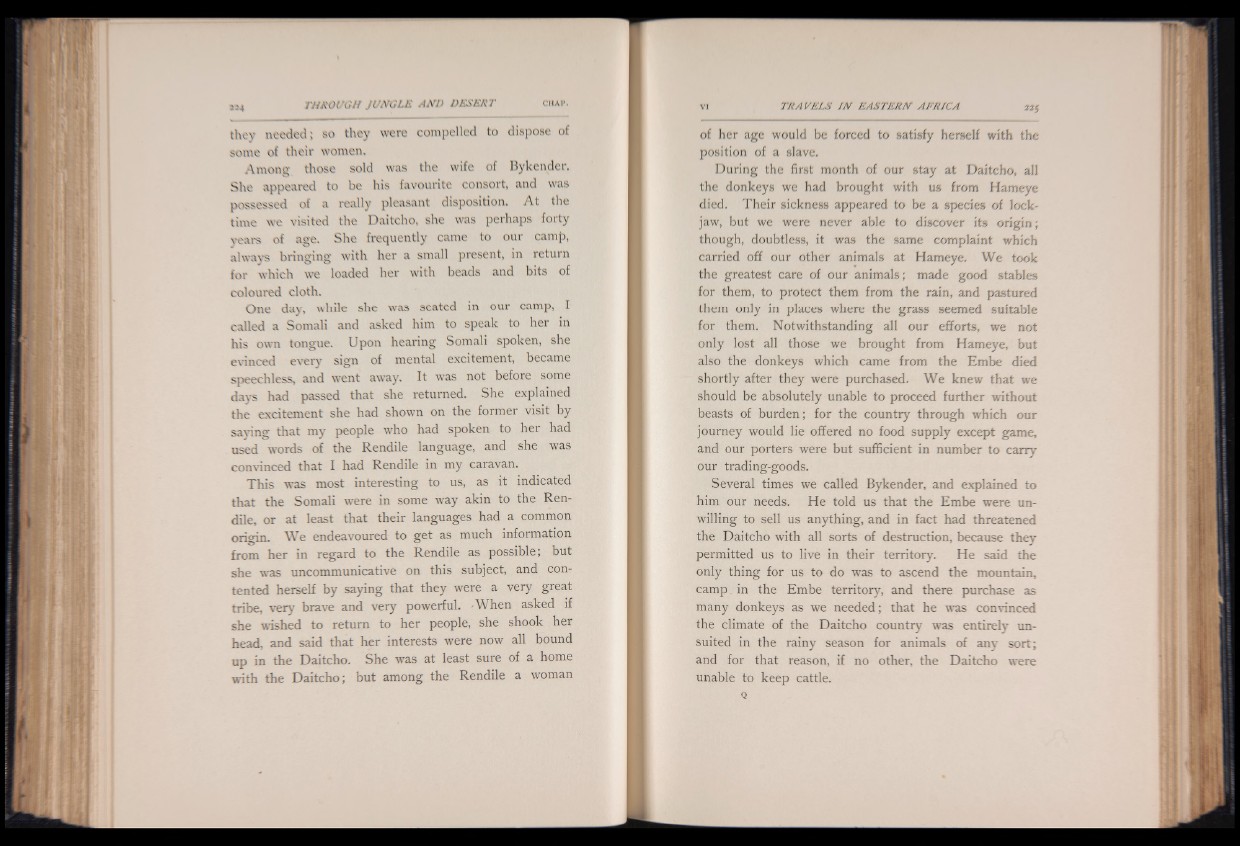
they needed; so they were compelled to dispose of
some of their women.
Among those sold was the wife of Bykender.
She appeared to be his favourite consort, and was
possessed of a really pleasant disposition. At the
time we visited the Daitcho, she was perhaps forty
years of age. She frequently came to our camp,
always bringing with her a small present, in return
for which we loaded her with beads and bits of
coloured cloth.
One day, while she was seated in our camp, I
called a Somali and asked him to speak to her in
his own tongue. Upon hearing Somali spoken, she
evinced every sign of mental excitement, became
speechless, and went away. It was not before some
days had passed that she returned. She explained
the excitement she had shown on the former visit by
saying that my people who had spoken to her had
used words of the Rendile language, and she was
convinced that I had Rendile in my caravan.
This was most interesting to us, as it indicated
that the Somali were in some way akin to the Rendile,
or at least that their languages had a common
origin. We endeavoured to get as much information
from her in regard to the Rendile as possible; but
she was uncommunicative on this subject, and contented
herself by saying that they were a very great
tribe, very brave and very powerful. -When asked if
she wished to return to her people, she shook her
head, and said that her interests were now all bound
up in the Daitcho. She was at least sure of a home
with the Daitcho; but among the Rendile a woman
of her age would be forced to satisfy herself with the
position of a slave.
During the first month of our stay at Daitcho, all
the donkeys we had brought with us from Hameye
died. Their sickness appeared to be a species of lockjaw,
but we were never able to discover its origin;
though, doubtless, it was the same complaint which
carried off our other animals at Hameye. We took
the greatest care of our animals; made good stables
for them, to protect them from the rain, and pastured
them only in places where the grass seemed suitable
for them. Notwithstanding all our efforts, we not
only lost all those we brought from Hameye, but
also the donkeys which came from the Embe died
shortly after they were purchased. We knew that we
should be absolutely unable to proceed further without
beasts of burden; for the country through which our
journey would lie offered no food supply except game,
and our porters were but sufficient in number to carry
our trading-goods.
Several times we called Bykender, and explained to
him our needs. He told us that the Embe were unwilling
to sell us anything, and in fact had threatened
the Daitcho with all sorts of destruction, because they
permitted us to live in their territory. He said the
only thing for us to do was to ascend the mountain,
camp in the Embe territory, and there purchase as
many donkeys as we needed; that he was convinced
the climate of the Daitcho country was entirely unsuited
in the rainy season for animals of any sort;
and for that reason, if no other, the Daitcho were
unable to keep cattle.
Q